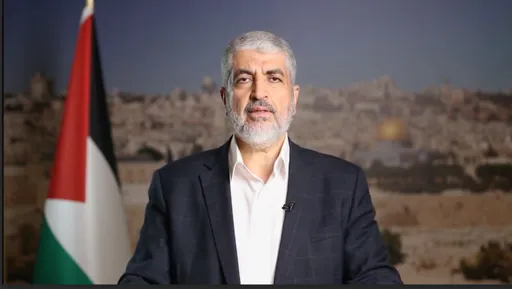General Asim Munir has taken charge as Pakistan's new army chief, a key change of command in an institution that plays a huge influential role in the governance of the nuclear-armed nation.
"I am certain that his (Munir's) appointment will prove positive for the army and the country," outgoing chief General Qamar Javed Bajwa said on Tuesday at a handover ceremony at the army's General Headquarters in the garrison city of Rawalpindi.
Munir, who was named as the new chief last week, takes control at a time when the army has been drawn into a political showdown between the government and former prime minister Imran Khan, even as the country faces an economic crisis and TTP terror group.
The army has historically wielded huge influence in Pakistan, ruling it for half of its 75-year history, but it has also been fighting local and foreign militants since 2001, when Pakistan became an ally of the United States in the "war on terror."
The alliance angered Pakistani militants, some of whom joined the Afghan Taliban in the years-long war that ended in 2021 with the withdrawal of the US and NATO forces in Afghanistan.
READ MORE: Pakistan PM set to appoint new army chief amid high political tensions
TTP challenge
One of the key challenges faced by the country's new army chief, General Asim Munir, will be how to respond to the latest threat from the Pakistani Taliban, also known as TTP, which has ordered its fighters to resume attacks across the country.
The military has also been fighting separatists in the southwest.
The Pakistani Taliban is a separate group but is allied with the Afghanistan Taliban, who seized power in Afghanistan more than a year ago as the US and NATO troops were in the final stages of their pullout.
Bajwa, during his tenure, had approved a series of operations against the militants to evict them from the country's former northwestern tribal regions bordering Afghanistan.
Bajwa also opened peace talks with TTP earlier this year.
The Pakistani Taliban had agreed to an indefinite ceasefire in May after talks with Pakistan's government and military officials in Afghanistan’s capital, Kabul.
The TTP, in a statement on Monday ended the ceasefire, vowing new attacks.
That has raised fears of violence in Pakistan, which has witnessed scores of deadly attacks, mostly claimed by the TTP, an umbrella group of several militant factions.
The Pakistani Taliban were behind a 2014 attack on an army-run school in the northwestern city of Peshawar that killed 147 people, mostly schoolchildren.
On Tuesday, Hina Rabbani Khan, the country's Deputy Foreign Minister, travelled to Kabul on a planned visit. She was expected to discuss various issues, including the latest threat from the Pakistani Taliban, in her talks with government officials.
READ MORE: Imran Khan: PTI will resign from all assemblies, rally called off
Military's role in politics
Tuesday's change in military command comes days after Prime Minister Shehbaz Sharif named Munir to replace Bajwa, who handed over his traditional "baton of command" to Munir at a ceremony amid tight security in the garrison city of Rawalpindi.
Munir was promoted to four-star general by Sharif last week to replace Bajwa, who retired at the height of his unpopularity.
In his speech, Bajwa congratulated Munir and hoped that during his tenure, the country's defence would be further strengthened.
Bajwa emerged as one of the most controversial army chiefs this year when opposition leader Imran Khan accused him of ousting his government as part of a US-led plot, a charge Sharif, the United States and the military have denied.
In his speech last week, Bajwa admitted the military's interference in politics for the past 70 years, which he said was "unconstitutional."
"Therefore, in February last year the military decided after a lot of deliberation that it would never again interfere in any political matter in future. I assure you we are strictly committed to it," he said.
Khan, a former cricket star turned politician, was ousted in a no-confidence vote in Parliament, and he wants new military leadership to end the political turmoil. The army chief is widely seen as the de facto ruler in Pakistan.
Munir's approach to the lingering political feud was unclear.
Munir has assumed the command of the military amid a deadlock between Khan and Sharif, who says the next polls will be held as scheduled in 2023. The military so far has publicly said that it will not play a role in politics, meaning it was up to Sharif's government and Khan to resolve any political issues.
READ MORE:Türkiye wishes 'swift recovery' to Pakistan's former PM Imran Khan























